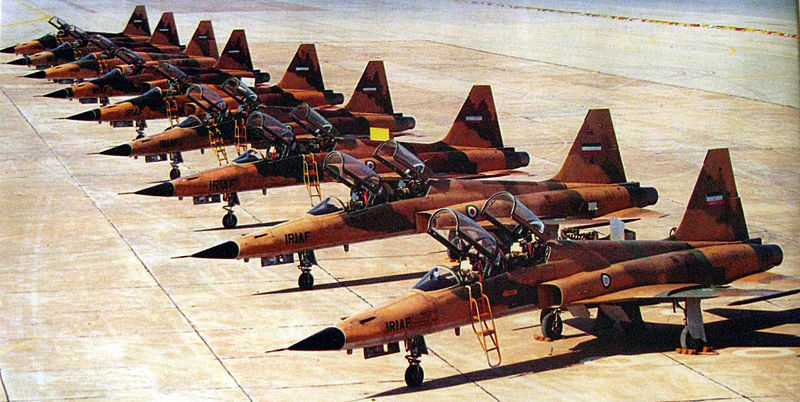It’s no secret that Israel has been banging away at Iranian targets in Syria for years. But just as there is a good reason for ambiguity about Israel’s nuclear weapons capabilities, there’s also good reason not to brag about targeting Iranian assets in Iran. So Israel has been keeping quiet.
Until now. Here’s part of what Prime Minister Benjamin Netanyahu said on a trip this week to the northern border: “The Israel Defense Forces has attacked hundreds of Iranian and Hezbollah targets. In the past 36 hours, the air force attacked Iranian depots full of Iranian weapons at Damascus International Airport.” Then he promised more attacks.
Bragging about the strikes invites—almost obligates—the Iranians to respond. One thing leads to another, and there we have it—a nice war to underscore how important it is to be tough in this tough neighborhood, how scary it is over here, how we are always just one step away from total annihilation. And all this just before Israel’s election.
As title of my new book, “Why Are We Still Afraid?” implies—all this is unjustified, dangerous, and wrong.
There’s a major problem with this Iran threat-danger-war scenario: Iran isn’t interested in a war with Israel. It’s interested, as Middle Eastern regimes have been for years, in talking about Israel, threatening Israel, slandering Israel. Not actually doing anything.
In fact, Iran has had a presence in Syria for decades. Since the civil war erupted there in 2011, its presence and role have increased. There have been Iranian forces in striking distance of Israel’s borders for nearly a decade. But except for one unexplained volley of rockets in the Golan Heights, how many actual, planned, intentional Iranian attacks against Israel have there been?
None.
Iran has been supplying weapons to the Lebanon-based Hezbollah, and Israel considers it legitimate to protect its border by interdicting those shipments. But from there to bragging about it is a long, fateful leap.
Israel already helped torpedo the Iran nuclear deal. I’m not going to go back over why that was a terrible mistake. If you want to follow my reasoning, you can go here, then here, and then here.
The US cancelation of the deal has led to reports that Iran is tooling up its uranium enrichment program. Oh, the outrage. Oh, the shock. What did we expect? As I wrote before, it’s a self-fulfilling “I told you so” situation.
But even that doesn’t amount to a threat against Israel. No, we’d rather bring damage like that on ourselves. We’ve done it before.
Netanyahu’s 2015 trip to Washington to address Congress in opposition to an Iran nuclear deal the sitting US president had already negotiated and was about to sign caused, or at least exacerbated, an unprecedented split between Israel and the mainstream Democratic Party. There was no chance that Netanyahu could stop the deal—it was too far along by then. But he gained “toughness” points from his base back home.
Now there’s an actual election in the near future, and Netanyahu is threatened by the hated, semi-traitorous left on one side and the immoral, ambitious, and leftist police and judiciary on the other. So what’s a little war with Iran compared to all that?
Let’s get real. Israeli experts who may not be quoted by name consider Iran a “rational player.” That is in stark contrast to the regime of crazy, hate-driven mullahs that Israel and its allies in the US government want us to imagine. Iran knows full well about Israel’s second-strike capabilities— more, certainly, than we are allowed to write here. There will be no nuclear attack on Israel from Iran.
Iran is willing to absorb the damage from Israel’s airstrikes in Syria as part of the cost of its influence there. Casualties among Iranian forces, up to now, have been relatively few. Absorb damage, yes. Absorb implied ridicule and insult? Not so much.
Netanyahu knows that. And yet, he said what he said. Then he conjured up the image of hundreds or thousands of Hezbollah terrorists racing through tunnels into Israel’s north, capturing territory, massacring Israelis. But it is patently absurd to think that any Hezbollah force could invade Israel through tunnels without being picked off immediately by Israeli forces.
So why scare the people? Why provoke Iran? Why anger the US president and alienate millions of Americans?
It’s all for Israeli politics, of course. It’s how Netanyahu stays in power.
But the cost, already high, could become catastrophic: An unnecessary war.
Correspondent MARK LAVIE has been covering Israel and the Middle East since 1972. His new book, “Why Are We Still Afraid?” is available on Amazon as e-book and paperback.


























